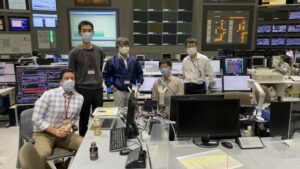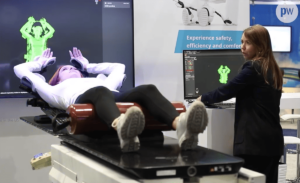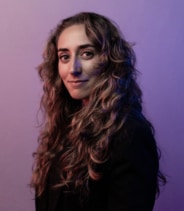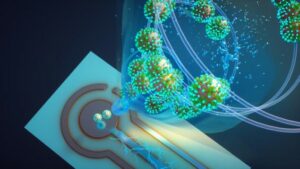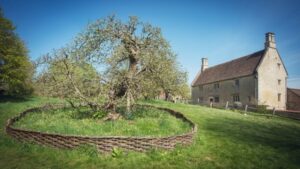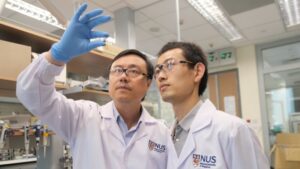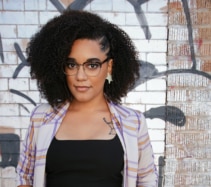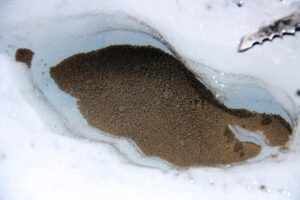Ellie Whitehall explains how her experiences mentoring school pupils while she was an undergraduate physics student encouraged her to train as a professional physics teacher
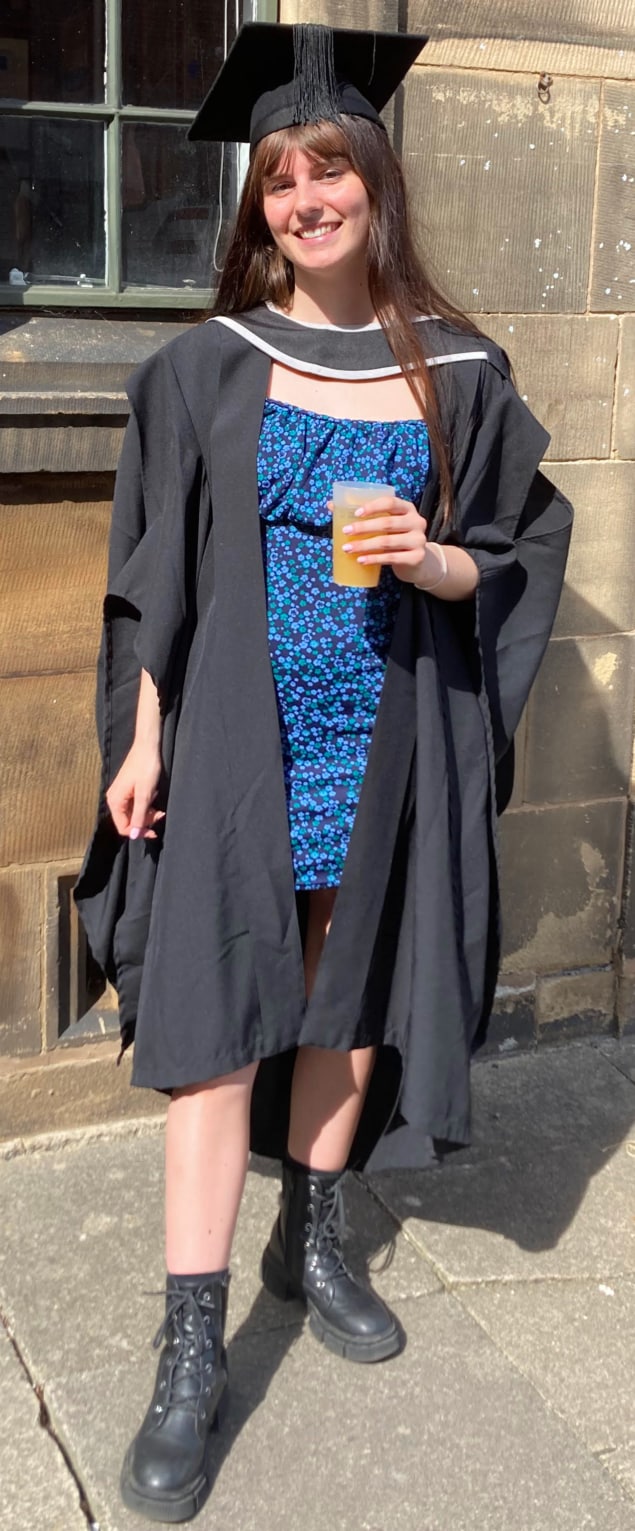
I first considered physics as its own branch of science when I began my GCSE studies, but I think my curiosity for the natural world was born much earlier. As a child, I distinctly remember discussing what atoms were made of at family gatherings and solving algebra with my dad for fun. I would spend hours reading about space, asking countless questions on how and why things worked, and watching the BBC show QI with my parents (still a family favourite).
At school I was lucky to have two specialist physics teachers, both of whom showed great passion and enthusiasm for the subject. Around the age of 15, my one and only female physics teacher told my class an anecdote that I remember to this day: during her undergraduate years some male students had boasted that girls could not achieve a first in physics. Motivated by her anger towards this comment, she worked hard and ultimately achieved the grade, proving them all wrong. I remember thinking there and then that I wanted to achieve this in my future (spoiler: I did). It is a cliché, but true: representation at school matters.
However, despite my teachers’ love for physics and my aptitude for the subject, I didn’t initially choose to study physics at A-level. Instead, I opted to take maths, further maths, biology and psychology. I knew I enjoyed and did well in mathematics, so taking the further option felt like a reasonable challenge. Additionally, my interests in science extended to the body and brain, which is why I opted for biology.
It was not until the summer after my GCSE exams that I realized I could combine my passions for maths and science by studying physics. Until then, I, like many others, had seen it as “the hard science”, the one that many people overlook in favour of biology and chemistry. I therefore decided to replace further maths and instead study physics with greater intent, starting to love the subject content more. So much so that I applied to study it at university.
Joining the University of Birmingham in September 2019, I was a first-year student during the early days of the COVID pandemic. Thus began 18 months of pre-recorded lectures, at-home lab projects and video tutorials from my mentor in South Korea. While I mostly enjoyed the content, I missed the social aspects, such as attending events run by the university’s Poynting Physical Society and in-person classes. As a result, I decided to use my free time to volunteer for the Coronavirus Tutoring Initiative – a scheme that lasted until June 2021 and paired secondary school and university students for one-to-one online tutoring. I planned and taught physics sessions for around nine months, and found myself thoroughly enjoying this first foray into teaching.
Level up
Pre-pandemic, I had also become an outreach ambassador for the university’s School of Physics. Over my three years in the job, I was lucky to speak to many young people who were enthusiastic about physics and curious about university life. It was a great opportunity to share my own interests and hear their stories and experiences. Through this, I realised that I had a passion for encouraging the next generation of physicists and for providing the pastoral side of education.
From this experience, I was then asked to join the Institute of Physics (IOP) and became involved in creating their new “Levelling Up” programme, which is designed to encourage and support sixth-form students to study physics at university. The programme is especially aimed at getting more students from under-represented backgrounds to study physics and related subjects.

I formed part of a team of student mentors who met A-level students fortnightly to offer guidance and support for the university application process. The scheme ran for a year, with the same small group coming together (remotely) twice a month, allowing students to ask for advice and support at each stage of their application. We discussed everything from how to put together a good personal statement, to a typical university timetable; helping them feel confident that their applications were as strong as possible. Being part of this scheme cemented my decision to pursue a pupil-facing role in education, which allowed for both pastoral and academic involvement.
Inspired by my physics teachers and driven by my love for tutoring and mentoring, I applied for an initial teacher education course at Birmingham, which I began in September 2022. Now, almost halfway through the programme, I have taught physics at all secondary-school ages and find great joy in every lesson. To be the first person to show a class what a Van der Graaff generator does is a truly priceless moment, and one I wish to repeat for many years to come. Even seemingly smaller things, such as asking a student about their day or getting them to try answering a question even if they are unsure, are equally rewarding. These connections, which are reinforced every day, are what build an early appreciation of physics; making it more than just a lesson in a timetable and instead a way of understanding the universe.
I do sometimes struggle with impostor syndrome – I often wonder how I am responsible for all these children while only being 22 myself – but the connection with students over a subject I love, and that hopefully they will too, makes every difficult moment worth it. The IOP is also guiding me through the process, via their scholarship programme, which will provide financial support and opportunities for professional development throughout my training years. I aspire to keep teaching across the UK for as long as I can, and encourage many more students to take up physics as a potential career.
- SEO Powered Content & PR Distribution. Get Amplified Today.
- Platoblockchain. Web3 Metaverse Intelligence. Knowledge Amplified. Access Here.
- Source: https://physicsworld.com/a/levelling-up-from-student-to-mentor-to-trainee-physics-teacher/
- :is
- $UP
- 2019
- 2021
- 2022
- a
- About
- AC
- academic
- Achieve
- achieved
- across
- Additionally
- advice
- After
- Ages
- All
- Allowing
- Ambassador
- and
- anger
- Application
- applications
- applied
- appreciation
- ARE
- around
- AS
- aspects
- At
- attending
- backgrounds
- bbc
- BE
- become
- began
- being
- biology
- Birmingham
- body
- born
- Brain
- Branch
- build
- by
- CAN
- Career
- cemented
- challenge
- chemistry
- child
- Children
- Choose
- class
- classes
- click
- CO
- combine
- come
- coming
- comment
- confident
- connection
- Connections
- considered
- content
- could
- course
- Covid
- Creating
- curiosity
- curious
- Dad
- day
- Days
- decided
- decision
- designed
- Despite
- Development
- DID
- difficult
- discussed
- discussing
- driven
- during
- each
- Earlier
- Early
- Education
- encourage
- encouraged
- encouraging
- enthusiasm
- enthusiastic
- equally
- especially
- Even
- events
- Every
- every day
- everything
- experience
- Experiences
- family
- female
- financial
- Find
- First
- For
- Foray
- formed
- found
- Free
- from
- fun
- further
- future
- gatherings
- generation
- generator
- getting
- girls
- good
- grade
- great
- greater
- Group
- guidance
- Hard
- Have
- hear
- helping
- Hopefully
- hoping
- HOURS
- How
- How To
- HTTPS
- i
- image
- in
- information
- initially
- instead
- Institute
- intent
- interests
- involved
- involvement
- issue
- IT
- ITS
- Job
- join
- jpg
- Keep
- korea
- lab
- lectures
- lesson
- Life
- like
- Long
- love
- made
- MAKES
- Making
- many
- many people
- mathematics
- Matters
- max-width
- mentoring
- moment
- Month
- months
- more
- motivated
- Natural
- next
- of
- offer
- on
- ONE
- online
- open
- opportunities
- Opportunity
- Option
- Others
- outreach
- own
- paired
- pandemic
- parents
- part
- passion
- People
- person
- personal
- physical
- Physics
- planned
- plato
- Plato Data Intelligence
- PlatoData
- possible
- potential
- Prepare
- priceless
- process
- professional
- programme
- projects
- provide
- providing
- Psychology
- pursue
- put
- question
- Questions
- Reading
- realized
- reasonable
- recent
- related
- remember
- repeat
- replace
- representation
- responsible
- result
- rewarding
- Role
- Run
- same
- scheme
- School
- Science
- secondary
- September
- sessions
- Share
- show
- small
- smaller
- So
- Social
- Society
- Solving
- some
- South
- South Korea
- Space
- speak
- specialist
- spend
- Stage
- Starting
- Statement
- Still
- Stories
- strong
- Struggle
- Student
- Students
- studies
- Study
- Studying
- subject
- such
- summer
- support
- Take
- taking
- teacher
- teachers
- Teaching
- team
- that
- The
- the UK
- their
- Them
- therefore
- These
- things
- Thinking
- thoroughly
- three
- Through
- throughout
- thumbnail
- time
- timetable
- to
- together
- too
- towards
- Train
- Training
- true
- tutorials
- Tutoring
- Twice
- typical
- Uk
- Ultimately
- understanding
- Universe
- university
- use
- via
- Video
- volunteer
- wanted
- watching
- Way..
- WELL
- What
- which
- while
- WHO
- will
- with
- worked
- world
- worth
- would
- Wrong
- year
- years
- young
- zephyrnet

